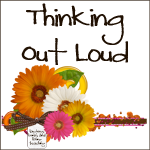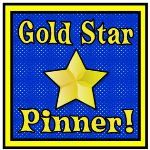In my role as a math and science instructional facilitator, I have been looking for easy, low-prep, engaging science activities that my teachers can use at the beginning of the year to get the kids excited about science class. Today I am going to share with you three activities that fit this bill. The toothpick and paperclip ideas I learned at a great science professional development this summer and the cups challenge was one that I saw in multiple places as I searched for STEM ideas.
Toothpick Star
What you need:- five toothpicks
- dropper
- wax paper
- water
What to do:
- Break each toothpick almost in half.
- Lay the toothpicks in a star shape.
- Using the dropper, place one drop of water at a time in the center.
Science behind it:
-->
Wood
is made up of various types of tissue, which provide strength and a transport
system for water and dissolved minerals from the roots up to the leaves. Capillary action combined with transpiration from
the leaves provides the force required to transport water vertically. Capillary action is the result of the strong
surface tension of water causing it to rise vertically up narrow capillaries.
The height to which water will rise in a capillary depends on its size and the
material it is made from. Capillary action can also be observed by dipping the
bottom of a strip of paper towel into water.
This is a video I took with my iPhone as we did this at a teacher workshop this summer.
Floating Paperclips
What you need:- bowl
- paperclips
- water
- various objects: plastic spoon, tissue paper
- Fill the bowl with water.
- Place the paperclips on top of the water (not as easy as it sounds)
Science behind it:
--> Surface tension is like a skin on the surface of the water where the water molecules hold on tight together. If the conditions are right, they can hold tight enough to support the paper clip. The paperclip is not truly floating; it is being held up by the surface tension. Many insects, such as water striders, use surface tension to walk across the top of the water in a pond or stream.
Questions that students can build experiments to answer:
- How many paperclips can the surface hold?
- What liquids have the strongest surface tension?
Cups Challenge
During the professional development I lead with my teachers this summer, I wanted to give them low-prep ways to engage their students in STEM challenges to begin the year. The Tower Cup Challenge was one of the easiest that I could find.What you need:
- set number of cups per group (I used 25)
What to do:
- Give the same number of cups to each group.
- Tell them: Your challenge today is to build the tallest tower using all of the cups.
- Give them 2 minutes of silent think time. They cannot touch the cups or talk to their group. 2 minutes is a long time (even for teachers to stay quiet) but they need the time to really think about what might work.
- Give them 5 minutes of group planning time. They still cannot touch the cups. They can talk. They can draw different ideas on paper.
- Give them 10 minutes of build time. Give them the entire ten minutes. Towers will fall and reemerge many times, so they need all the time. The team with the tallest tower at the end of time wins.
- You can discuss at this point or give them another ten minutes to redesign and try again.
If you enjoyed this bright idea, please consider joining me on Facebook, Instagram or Twitter for more great ideas.
For bright ideas from more than 100 different bloggers, please browse through the link-up below and choose a topic/grade level that interests you. Thanks for visiting!

































Love these ideas! Thanks for sharing- I'll definitely keep them in mind when I'm planning my first week of science lessons :)
ReplyDeleteJenny
Luckeyfrog's Lilypad